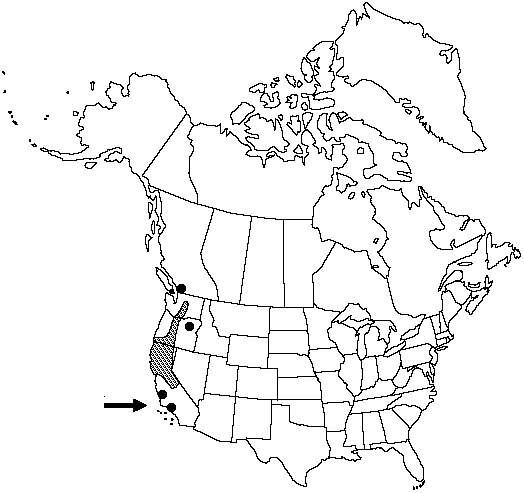Polystichum imbricans subsp. imbricans
Stems decumbent to ascending. Leaves stiffly erect, 2.5–5 dm. Pinnae lanceolate-oblong, less than 5 times longer than wide, twisted out of plane of blade (adaxial surfaces facing upward like Venetian blinds), base usually cupped, apex cuspidate. Indusia entire.
Habitat: Rooted at base of boulders or in cliff crevices in drier sites of mesic montane forests
Elevation: 0–2500 m
Distribution

B.C., Calif., Oreg., Wash.
Discussion
Polystichum imbricans subsp. imbricans grows in the Coast Ranges and the Sierra-Cascade axis. It is isolated in the Wallowa Mountains of eastern Oregon.
Sun forms of Polystichum munitum are often mistaken for P. imbricans; characteristics of the distal petiolar scales and indusial margins are more reliable than gross morphologic features for distinguishing them. Polystichum imbricans has narrow distal petiolar scales that fall off early; P. munitum has wide distal petiolar scales (the largest more than 1 mm wide) that are persistent. Polystichum imbricans hybridizes readily with P. munitum, the hybrids usually being sterile but in some places forming hybrid swarms because of partial fertility of the hybrids (D. H. Wagner 1979). The hybrids with P. californicum are discussed under that species.
Selected References
None.
Lower Taxa
"dm" is not declared as a valid unit of measurement for this property."/4lengthofleaf" is not declared as a valid unit of measurement for this property.